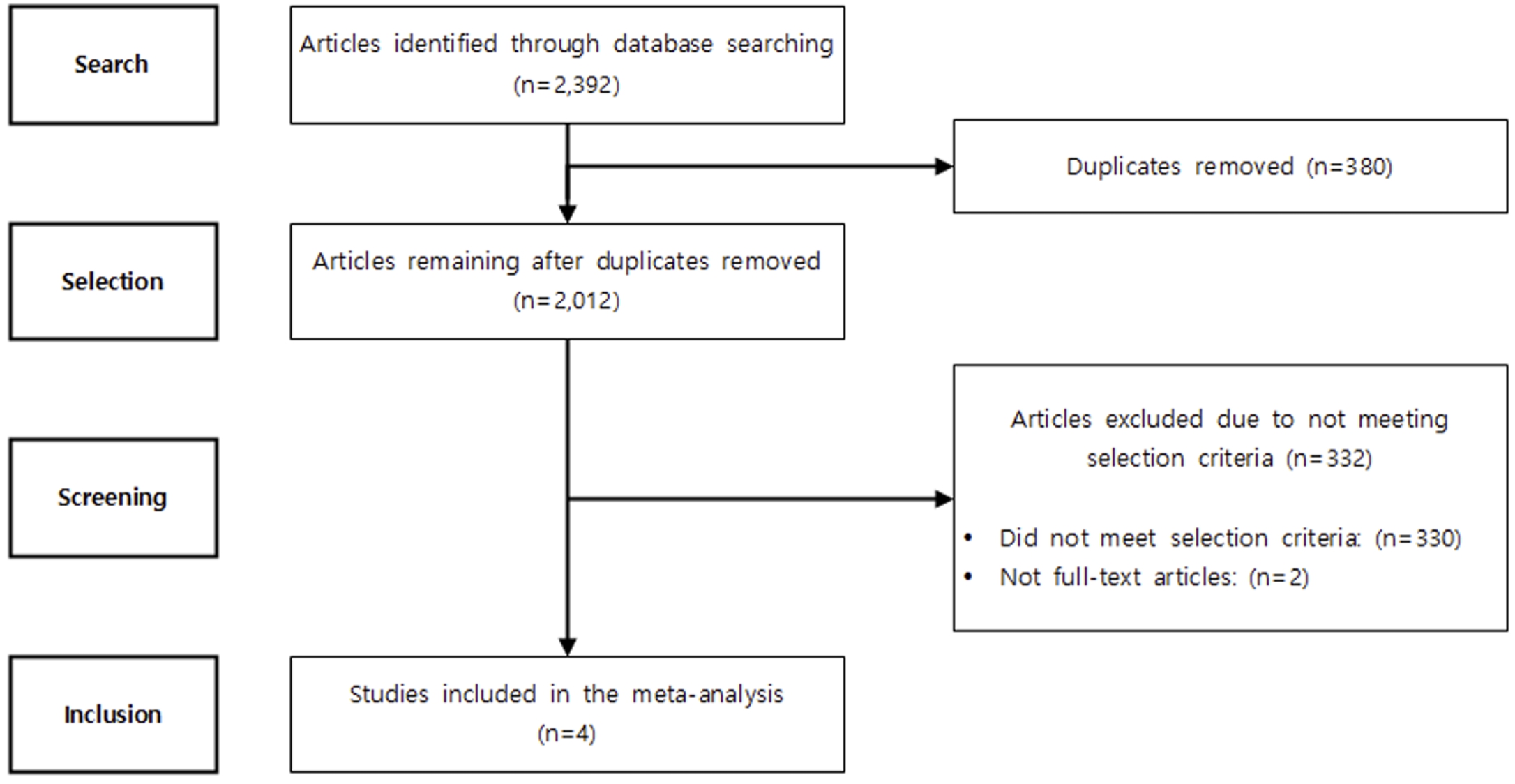Abstract
Purpose: This study aims to evaluate the effectiveness of virtual reality intervention programs for improving cognitive function among individuals with mild cognitive impairment and dementia, using a systematic review and meta-analysis. Methods: Literature published up to September 2024 and indexed in academic journals was reviewed. International databases, including CINAHL, PubMed, EMBASE, and Cochrane, were utilized alongside domestic databases such as RISS, KISS, and DBpia. A total of four studies meeting the inclusion and exclusion criteria were selected for the final analysis. Statistical analyses, including effect size and heterogeneity calculations, were performed using R version 4.0.2. Results: The findings revealed a large effect size (0.90) for the improvement of cognitive function through virtual reality intervention programs, with statistical significance (p < .001). These results provide valuable evidence supporting the development and implementation of virtual reality-based simulation programs tailored to specific intervention goals, reflecting the differences and characteristics of cognitive function. Conclusion: This study highlights the potential of virtual reality interventions to enhance the quality of life and rehabilitation of individuals with mild cognitive impairment and dementia. The results are expected to contribute to the establishment of more systematic and effective intervention strategies in clinical and research settings.
Figures & Tables

Fig. 1.PRISMA diagram
